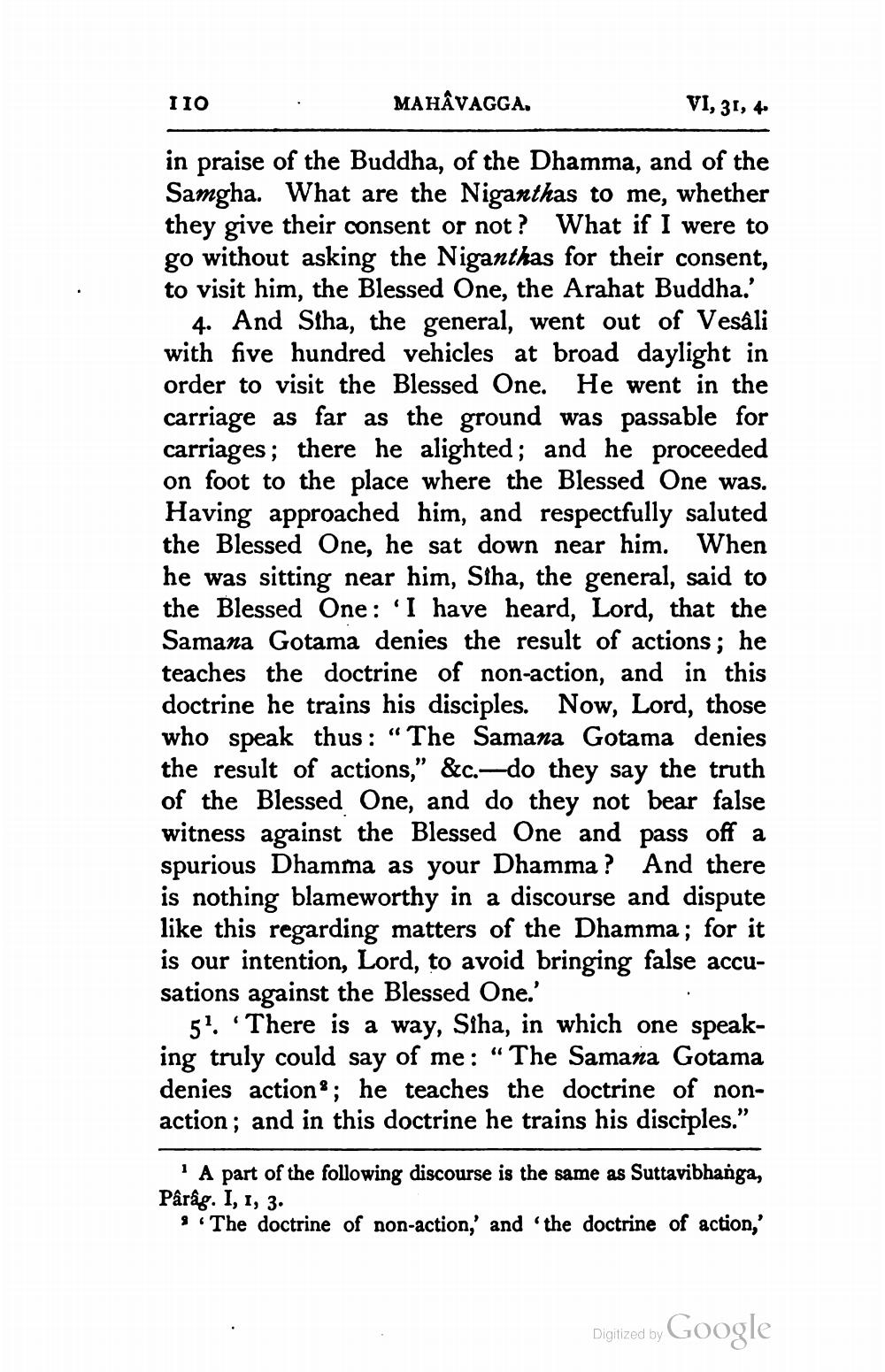________________
IIO
MAHÂVAGGA.
VI, 31, 4.
in praise of the Buddha, of the Dhamma, and of the Samgha. What are the Niganthas to me, whether they give their consent or not? What if I were to go without asking the Niganthas for their consent, to visit him, the Blessed One, the Arahat Buddha.'
4. And Stha, the general, went out of Vesali with five hundred vehicles at broad daylight in order to visit the Blessed One. He went in the carriage as far as the ground was passable for carriages; there he alighted; and he proceeded on foot to the place where the Blessed One was. Having approached him, and respectfully saluted the Blessed One, he sat down near him. When he was sitting near him, Stha, the general, said to the Blessed One: 'I have heard, Lord, that the Samana Gotama denies the result of actions; he teaches the doctrine of non-action, and in this doctrine he trains his disciples. Now, Lord, those who speak thus: “The Samana Gotama denies the result of actions,” &c.—do they say the truth of the Blessed One, and do they not bear false witness against the Blessed One and pass off a spurious Dhamma as your Dhamma ? And there is nothing blameworthy in a discourse and dispute like this regarding matters of the Dhamma; for it is our intention, Lord, to avoid bringing false accusations against the Blessed One.'
5° There is a way, Siha, in which one speaking truly could say of me: “The Samana Gotama denies actions; he teaches the doctrine of nonaction; and in this doctrine he trains his disciples.”
A part of the following discourse is the same as Suttavibhanga, Parág. I, 1, 3.
si The doctrine of non-action, and the doctrine of action,
Digitized by
Digitized by Google




